9 Amazing Health Benefits Of Donkey Milk You Need To Know About
Unveil Queen Cleopatra's beauty secret for nourishing her skin and making it silky smooth.
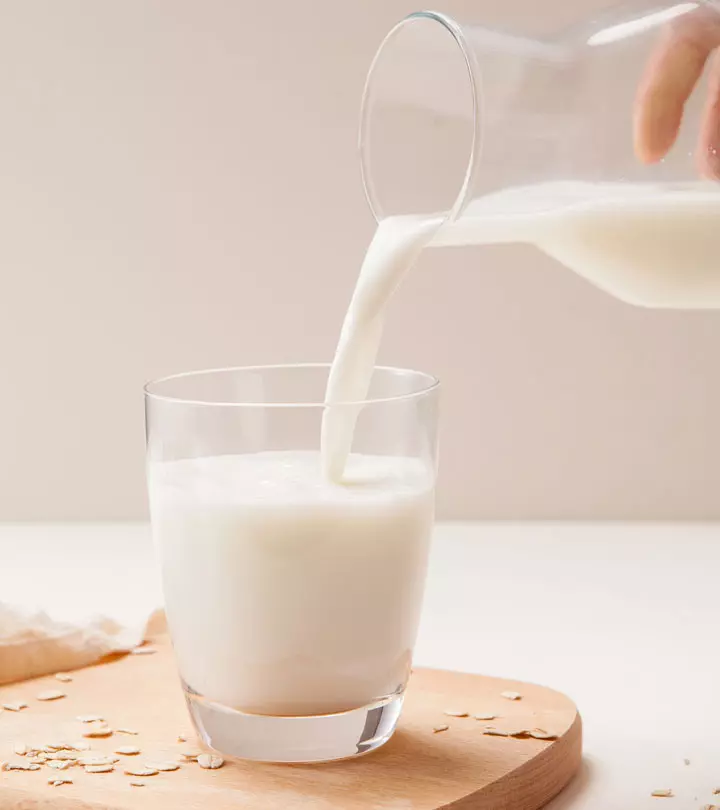
Image: Shutterstock
Donkey milk benefits your health in many ways. It is a popular alternative to cow milk and has similar nutritional qualities to human breast milk. It contains considerably less fat, more minerals, and more lactose than cow’s milk. Donkey milk is also good for the skin due to its high vitamin, mineral, and polyunsaturated fatty acid content. Historically, Cleopatra valued this nutritionally dense drink for its skincare benefits as it has amazing rejuvenating qualities. It is also a great choice for infants, as it contains natural antibacterial compounds and boosts heart and bone health. This article explains how to enjoy donkey milk and what it can do for your body. Take a look.
 Know Your Ingredient: Donkey Milk
Know Your Ingredient: Donkey MilkWhat Is It?
It is a white liquid food produced by the mammary glands of a domesticated donkey.
What Are Its Benefits?
It may promote digestive health, skin health, heart health, and bone health and reduce inflammation and infection.
Who Can Consume It?
Donkey milk is safe for infants and is a great alternative for those who are allergic to cow milk.
How Often?
You can consume a glass of donkey milk regularly.
Caution
Boil the milk before consumption. Avoid consuming it if you are lactose intolerant.
In This Article
What Is Donkey Milk?
Donkey milk is produced by domesticated donkeys (Equus asinus). Donkeys belong to the horse family and are found in parts of Africa, Europe, and Asia. This animal milk is white and thin, with a pleasing milky aroma and a sweet taste. However, donkey milk does not have a persistent aftertaste (1), (2).
The drink may also be called ass milk or jenny milk (as jenny denotes a female donkey). It is popular due to its high nutritional value and is the closest alternative to human breast milk. As a result, donkey milk is a popular choice for infants and children (1).
Christine VanDoren, CN, CPT, says, “While donkey milk may not be on many shelves in grocery stores, it is quite similar to cow’s milk and goat’s milk. It has been utilized for years for primarily medicinal purposes, and it may be able to provide you with many benefits!”
Donkey milk is highly sought after in Europe. Traditionally, it was used to treat arthritis, coughs, surgical wounds, and ulcers. The Egyptian queen Cleopatra used it to hydrate and soften her skin. You can find donkey milk in soaps and creams throughout France and Italy (3).
 Trivia
TriviaDonkeys produce less milk than other farming animals as their udder is small. For example, a jenny produces about four cups or one liter of milk in a day. Therefore, donkey milk is tough to find and expensive (1).
Donkey milk’s high price tag hasn’t affected its popularity. Instead, health enthusiasts are attracted by its immense benefits and rich nutritional profile. Learn more about donkey milk’s nutrition below.
Key Takeaways
- Infants can have donkey milk because it contains multiple nutrients.
- It is a perfect substitution for cow milk; hence, people allergic to the latter can easily have donkey milk.
- It prevents infections, as it is rich in immunoglobulins and lysozyme.
- Donkey milk improves digestion since it has lactose and casein.
Nutritional Information Of Donkey Milk
A 100 mL of donkey milk contains (1):
| Calories | 49 g |
| Proteins | 1.5 – 1.8 g |
| Carbohydrates | 6 g |
| Total lipids (Fat) | 0.3 – 1.8 g |
| Calcium | 2% |
| Vitamin D | 23% |
| Riboflavin | 2% |
Lactose, total protein, and whey protein content of donkey and human milk are similar. The nutritional value and digestibility of donkey milk powder are superior to cow milk powder.
Donkey milk contains high whey protein (49.08% of total protein) and essential fatty acids like linoleic acid. It has low fat and cholesterol content and contains vitamins A, C, and D and minerals such as calcium and selenium (4). These nutrients make it a potent antioxidant ingredient, which may also help boost immunity. So keep scrolling to learn more about the various donkey milk benefits and why you should incorporate it into your diet.
Potential Benefits Of Donkey Milk
1. Great Option For Infant Nutrition

As far as its nutritional component, protein composition, and hypoallergenic properties are concerned, donkey milk is comparable to human milk.
Donkey’s milk has high unsaturated and saturated fatty acids. Its polyunsaturated fatty acid n3 content and low n-6 to n-3 fatty acid ratio suggest its potential use as a functional food for human nutrition, particularly for infants and the elderly (5).
Donkey’s milk contains nine times more taurine than cow’s milk, making it an ideal substitute for human milk. Taurine is an important nutrient that promotes growth in infants. It must be obtained from external sources as the human body does not produce taurine (4).
 Trivia
Triviaof bringing motherless infants directly to the donkey’s nipple. Donkey’s milk was then sold until the 20th century to feed orphaned infants.
That is why donkey milk was fed to infants, ill children, and elderly patients during the early 19th century.
2. Great For People With Cow Milk Allergy
VanDoren says, “In one serving, there is about an equal amount of casein and whey, which makes it more allergen-friendly than cow’s milk, which contains mostly casein.”
Cow’s milk protein allergy affects 2-7% of children consuming cow’s milk formula. Studies found that donkey milk fortified with sunflower oil could replace cow milk (3).
In a study, 81 children allergic to cow milk could digest donkey milk without any allergic or adverse effects on growth and weight gain (6).
3. May Fight Against Infections
Donkey milk is rich in lactoferrin, fatty acids, immunoglobulins, and lysozyme, which have natural antibacterial properties. It is effective against pathogenic bacteria such as Salmonellai A common bacterial infection that affects the intestines and causes diarrhea, fever, and stomach cramps. , Enterococcusi A type of lactic acid bacteria that is a common cause of urinary tract infections, meningitis, and infective endocarditis. , Escherichiai Also known as E. Coli, a bacterium that causes many common infections like bacteremia, cholecystitis, and urinary tract infection. , and Listeriai A severe infection caused by the bacteria Listeria monocytogenes, which can manifest into sepsis, meningitis, and encephalitis. (7), (8), (9), (10).
4. May Reduce Inflammation

A study on mice found that consuming donkey milk could reduce inflammation by restoring antimicrobial peptides levels. Furthermore, it can activate anti-inflammatory signals, thereby reducing inflammation and maintaining normal health (11), (12).
5. May Promote Skin Health
The vitamins, antioxidants, and essential fatty acids in donkey milk can boost skin health. Most of the benefits come from milk proteins containing all the amino acids necessary for regenerating and protecting the skin barrier. Donkey milk is a good moisturizer and excellent for milk baths (13), (14).
6. May Strengthen Bones

Lactose in donkey milk aids in the absorption of calcium, phosphorus, and other bone-building minerals. It also boosts bone quality and strength (4).
VanDoren says, “It is also very high in vitamin D, providing you with 23% of your daily needs in only three ounces. Vitamin D is essential for strong bones, calcium absorption, and an improved immune system.”
7. May Promote Heart Health
Donkey milk is rich in polyunsaturated fatty acids, mainly linoleic acid, and has a low n-6 to n-3 fatty acid ratio. It also has low values of atherogenic (the tendency of fatty deposits in the arteries.) and thrombogenic indices (tendency to form clots in the blood vessels), and a high level of unsaturated and saturated fatty acids.
In addition to their immune-stimulatory properties, these parameters also act as cholesterol-lowering agents, prevent blood clots, and reduce coronary heart disease, hypertension (high blood pressure), and thrombosis (formation of a blood clot) risk (15).
8. May Promote Digestion
Donkey milk is high in lactose, which promotes intestinal microbial proliferation. It has a high ratio of whey proteins than casein, making it easy for an infant to digest and absorb the nutrient (4).
9. May Help Manage Diabetes

A study on type 2 diabetic rats found that consuming donkey milk powder could improve insulin resistance and reduce blood glucose levels (16).
For these reasons, donkey milk and powder are preferred for infants with cow milk allergies or those with cerebrovascular diseases or diabetes mellitus. This nutrient-packed beverage is considered to be “pharma food.” Learn how you can incorporate this beneficial milk into your diet below.
How To Add Donkey Milk To Your Diet
There are countless donkey milk uses, making it an easy addition to your diet. You can either use it to prepare baked goods such as cakes and cookies or add it to savory dishes like soups and pasta. Get the day started with a donkey milk latte, cereal, or cup of milk. It has a pleasantly mild flavor and is an excellent choice for kids.
Donkey milk is available in the following forms:
- Raw donkey milk: Always boil any dairy raw milk before consuming it. You can refrigerate raw milk for 3 days.
- Pasteurized donkey milk: It is safer as the risk of pathogen contamination is low. Certain commercial brands fortify it with vitamins and minerals.
- Freeze-dried donkey milk powder: You can reconstitute powdered milk with water. It has a shelf life of two years. Since it is made from pasteurized donkey milk, you can consume it immediately.
- Fermented donkey milk (kumis): Kumis is widely used in Central Asia. Traditionally, people in Central Asia also use fermented equid (a type of horse) milk.
- Cheese: Pule cheese or magareći sir is a Serbian cheese made from 60% donkey milk and 40% goat milk. It is one of the most expensive cheeses made from authentic Balkan donkey milk.
Each type has its own advantages and can be used in different ways to make various recipes. Try out these options to find a recipe that works best for your dietary needs and tastes.
Here are a few recipes you may try with donkey milk and enjoy its goodness.
Popular Recipes With Donkey Milk
1. Green Smoothie
What You Need
- ½ cup of spinach
- 1 frozen banana (diced)
- ½ an avocado (peeled and pitted)
- ¼ cup of donkey milk
- ½ teaspoon of vanilla extract
- ¼ teaspoon of ground cinnamon
How To Prepare
- Blend all ingredients until smooth. Enjoy!
2. Milk Soup
What You Need
- 4 cups of donkey milk
- 2 cups of cooked rice
- 3 to 4 turnips (cubed and peeled)
- 4 tablespoons of unsalted butter
- Kosher salt, to taste
- Sugar, to taste
How To Prepare
- Boil milk and cooked rice in a saucepan.
- Add the turnips and cook for 15 minutes.
- Serve hot with a tablespoon of butter and salt or sugar.
3. Kumis (With Donkey Milk)
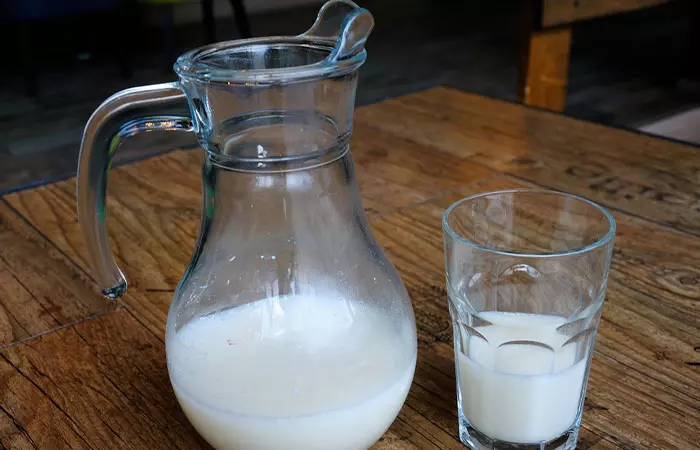
What You Need
- 1 liter of donkey milk
- 200 mL water
- 3 teaspoons of honey
- 2 tablespoons of yogurt
- 5 g of yeast
How To Prepare
- Boil the milk in a saucepan. Add honey and water and allow it to cool.
- Add yogurt to it. Wrap the lid in a warm towel and leave it in a warm place for three to four hours.
- Whip it well with a whisk, and strain it with gauze into any suitable container.
- Dilute the yeast in water until it becomes thick (like sour cream). Then, add it to the kumis with a pinch of sugar.
- Mix the liquid thoroughly and pour it into small bottles. Then close the lids tightly.
- After 30 minutes, fermentation will begin in the containers.
- Refrigerate the kumis bottles for at least 24 hours before drinking.
Like Kumis, there is another mediterranean cuisine called Kefir, which is made with this alternative milk option that acts as a traditional medicine in that region.
The benefits of this delicious, nutritious milk are numerous. But unfortunately, not everyone can benefit from it. Learn more about it below.
Potential Side Effects Of Donkey Milk
People allergic to cow milk can find value in donkey milk as a source of nutrition and an interesting food supplement. Nevertheless, donkey milk is higher in lactose than ruminant milk. Because of this, it is not suitable for people with lactose intolerance, which is about 10 to 60% of the population (2).
VanDoren says, “While there are many benefits to drinking donkey milk, there are a few downsides. If you are lactose intolerant, it will cause the same side effects as cow’s milk – gas, bloating, and other digestive issues.”
Donkey milk is often sold or consumed raw. This could pose a threat in certain cases.
She adds, “There is also a risk with drinking donkey milk raw. It can contain harmful bacteria and toxins that could be dangerous to your system.”
Before consuming it, you should boil or pasteurize donkey milk to avoid health complications. Using raw milk for cosmetic purposes should not pose a major problem, but be sure to consult your dermatologist before using such cosmetics.
She concludes, “Lastly, it is hard to come by! Donkey milk is not a common beverage, and it is mostly consumed in Europe. This means, if you live anywhere else, it would be expensive to get it delivered to your front door.”
You wouldn’t have to worry about these side effects if you choose donkey milk from trusted suppliers. We shed more light on this aspect in the following section.
Where To Buy Donkey Milk?
Donkey milk may be available in specialty grocery stores or farmers’ markets that focus on fresh, local produce. As donkey milk becomes more popular, many online stores and health food shops now offer it in different forms. You may also check for donkey farms near you that may offer direct delivery, as this would save you a lot of hassle. You can also check with the dairy cooperatives if donkey milk is available. Always remember to be sure about the quality of the milk and the reputation of the source or seller. Make sure you look for certifications and quality guarantees from suppliers to ensure that you are buying safe and ethically sourced products. Also, consider supporting local farmers who follow sustainable practices.
The Final Word
The benefits of donkey milk go beyond its pleasantly sweet flavor. This nutritionally rich natural beverage is similar to human breast milk in many aspects. It was traditionally used to nourish children and elderly patients in Europe. Also, donkey milk has fewer allergens than cow milk. It is enriched with vitamins A, C, D, and E, omega-3 and -6 fats, calcium, zinc, and magnesium and can promote growth and development in children. Donkey milk also promotes bone and heart health. However, it has high lactose content. Therefore, avoid it if you are lactose-intolerant.
Infographic: 6 Reasons For Drinking Donkey Milk
Donkey milk was used by Cleopatra to keep her skin smooth and healthy. Today, it is used as an alternative to cow milk and for infant nutrition due to its high vitamin and mineral content. Check out the infographic below to know more about the benefits of including donkey milk in your diet. Illustration: StyleCraze Design Team
Frequently Asked Questions
How long does donkey milk last?
Raw donkey milk can last up to 3 days while pasteurized milk lasts for about a week when stored in the refrigerator.
Is donkey milk vegan?
No. Donkey milk is a dairy product that comes from an animal, a donkey.
Is donkey milk good for asthma?
Possibly. A study conducted on asthmatic mice suggests that donkey milk may help relieve asthma symptoms due to its anti-inflammatory properties (17).
Does donkey milk contain retinol?
Yes. Donkey milk contains vitamin A (a retinol derivative) that may help boost immunity and eye health (18).
Illustration: Is Donkey Milk Healthy? Benefits Recipes And Side Effects

Image: Stable Diffusion/StyleCraze Design Team
Discover the amazing benefits of donkey milk, its uses, and potential downsides. Check out the video below to learn how this unique milk can help improve your health and well-being.
References
Articles on StyleCraze are backed by verified information from peer-reviewed and academic research papers, reputed organizations, research institutions, and medical associations to ensure accuracy and relevance. Read our editorial policy to learn more.
- Nutritional and Health Benefits of Donkey Milk
https://www.peertechzpublications.org/articles/JFSNT-6-122.php - Composition, Characteristics, Nutritional value and Health Benefits of Donkey Milk-A Review
https://hal.science/hal-01538532/document - Donkey milk-based formula: A substitute for patients with cow’s milk protein allergy
https://www.ncbi.nlm.nih.gov/labs/pmc/articles/PMC4949830/ - The nutritional ingredients and antioxidant activity of donkey milk and donkey milk powder
https://link.springer.com/article/10.1007/s10068-017-0264-2 - Fat content, energy value and fatty acid profile of donkey milk during lactation and implications for human nutrition
https://link.springer.com/article/10.1186/1476-511X-11-113#Sec11 - Adequacy and tolerance to ass’s milk in an Italian cohort of children with cow’s milk allergy
https://ijponline.biomedcentral.com/articles/10.1186/1824-7288-35-19 - Antibacterial activity of donkey milk against Salmonella
https://www.researchgate.net/profile/Ljubisa-Saric/publication/286104797_Antibacterial_activity_of_donkey_milk_against_Salmonella/links/566818e608ae8905db8dc610/Antibacterial-activity-of-donkey-milk-against-Salmonella.pdf - Microbial Profile Antibacterial Properties and Chemical Composition of Raw Donkey Milk
https://www.mdpi.com/2076-2615/10/11/2001 - Assessment of antibacterial activity of donkey milk lysozyme. Safety and hygiene issues.
https://www.researchgate.net/publication/281219928_Assessment_of_antibacterial_activity_of_donkey_milk_lysozyme_Safety_and_hygiene_issues - Antibacterial properties of Domestic Balkan donkeys’ milk
https://www.sciencedirect.com/science/article/abs/pii/S095869461200074X - Donkey milk consumption exerts anti-inflammatory properties by normalizing antimicrobial peptides levels in Paneth’s cells in a model of ileitis in mice
https://link.springer.com/article/10.1007/s00394-016-1304-z - Anti-inflammatory and Anti-Allergic Properties of Donkey’s and Goat’s Milk
https://www.ingentaconnect.com/content/ben/emiddt/2014/00000014/00000001/art00005 - Favorable effect of creams with skimmed donkey milk encapsulated in nanoliposomes on skin physiology
https://pubmed.ncbi.nlm.nih.gov/32372458/ - The Regenerative Potential of Donkey and Human Milk on the Redox-Sensitive and Proliferative Signaling Pathways of Skin Fibroblasts
https://www.ncbi.nlm.nih.gov/labs/pmc/articles/PMC7673926/ - Donkey’s milk detailed lipid composition
https://pubmed.ncbi.nlm.nih.gov/20036900/ - Dezhou donkey (Equus asinus) milk a potential treatment strategy for type 2 diabetes
https://pubmed.ncbi.nlm.nih.gov/31494203/ - Preventive effects of donkey milk powder on the ovalbumin-induced asthmatic mice
https://www.sciencedirect.com/science/article/pii/S1756464621002528 - Vitamins in Human and Donkey Milk: Functional and Nutritional Role
https://www.ncbi.nlm.nih.gov/pmc/articles/PMC8145040/
Read full bio of Rowinda Dimech
Read full bio of Payal Karnik
Read full bio of Ravi Teja Tadimalla
Read full bio of Moksha Gandhi







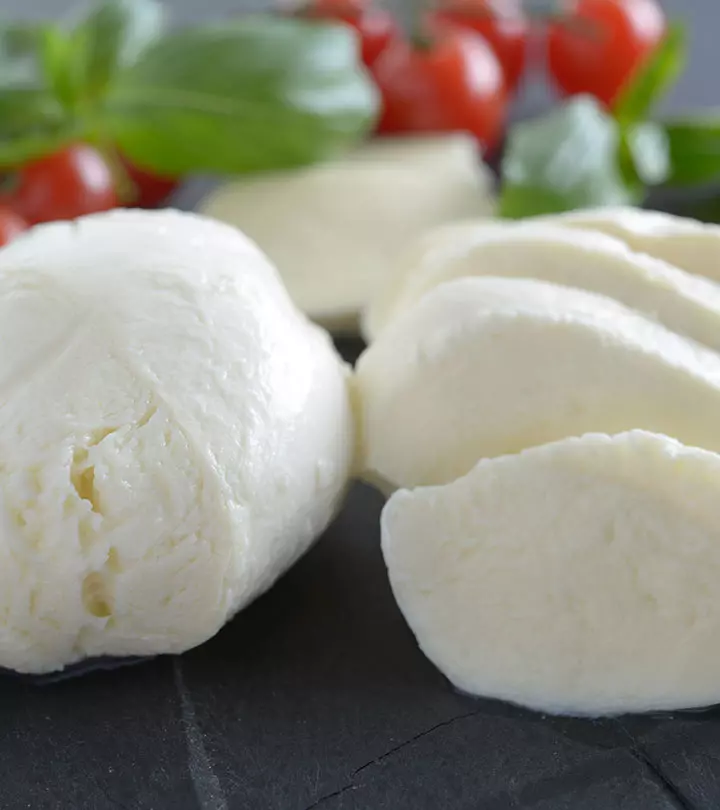
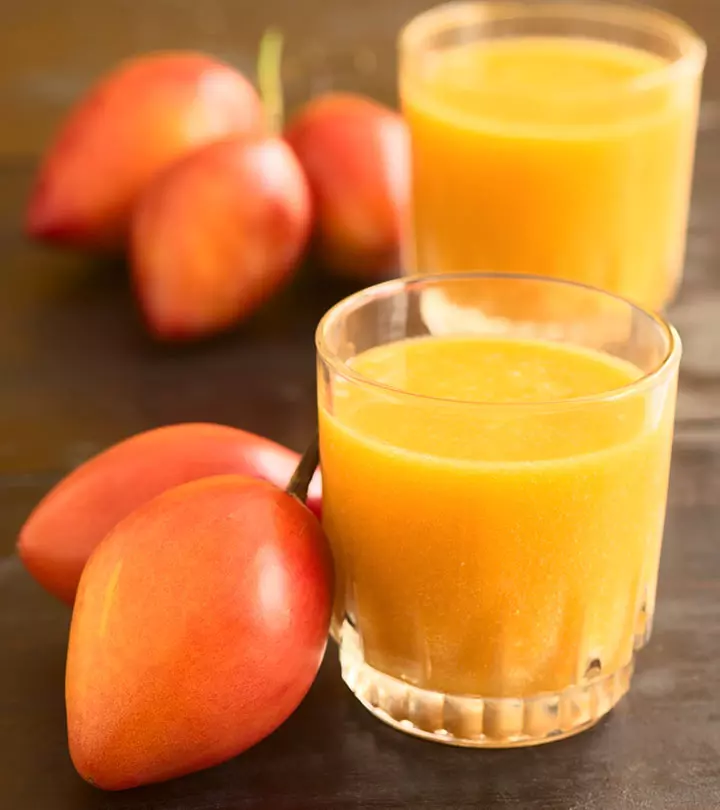

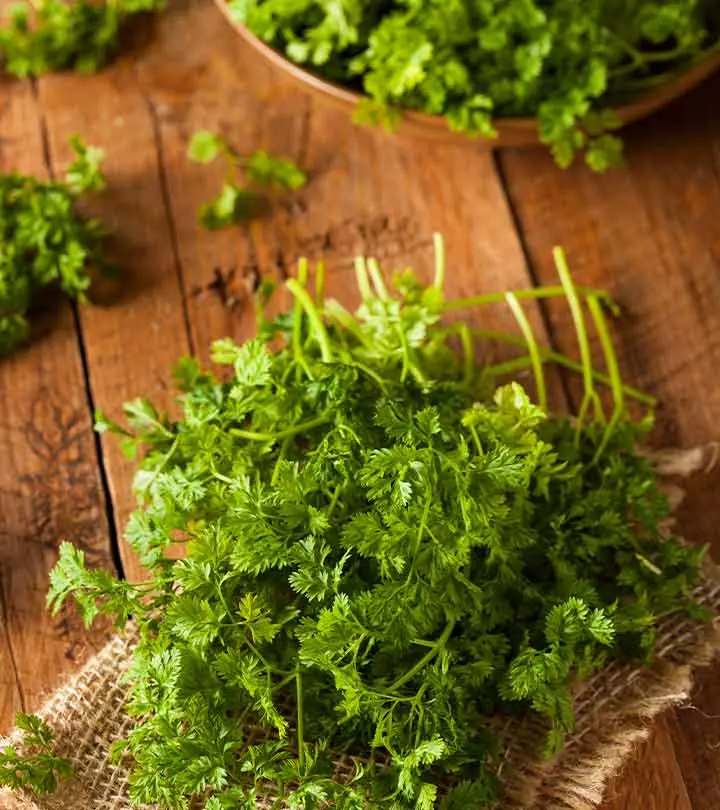
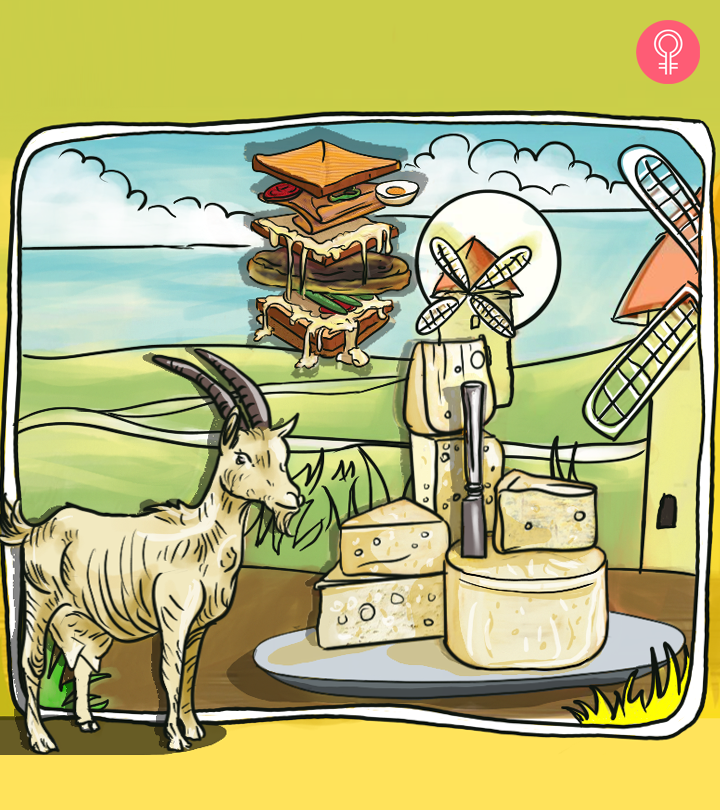
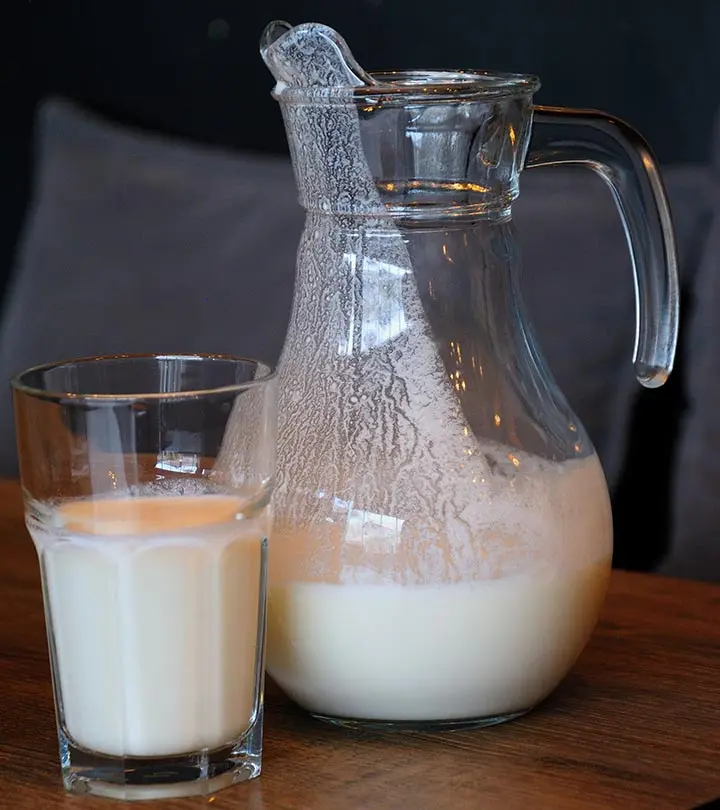

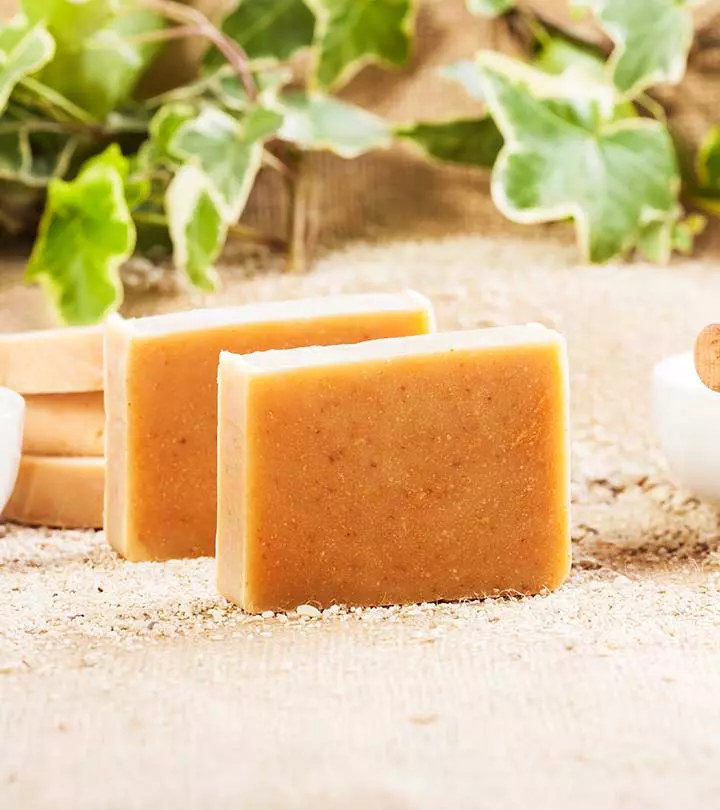

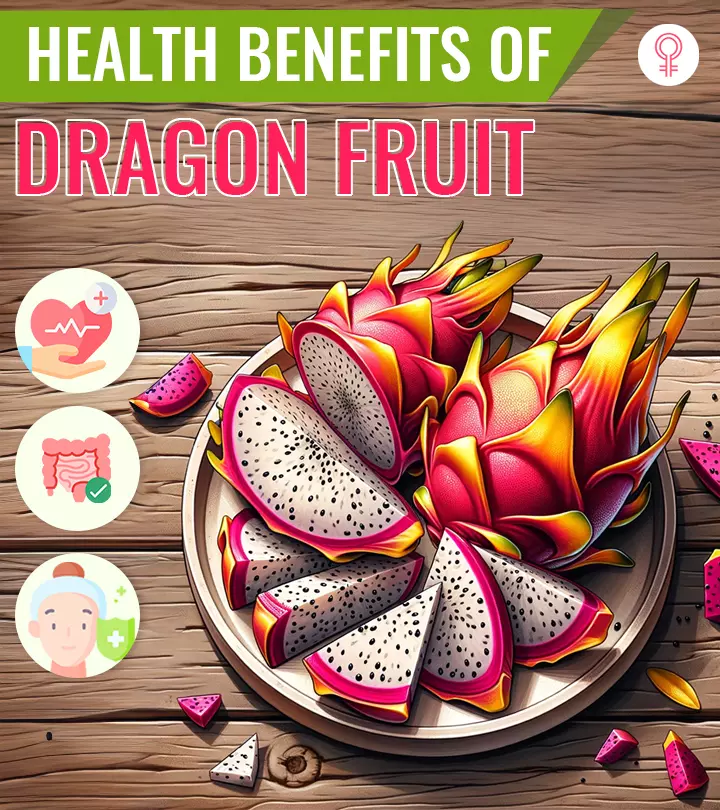
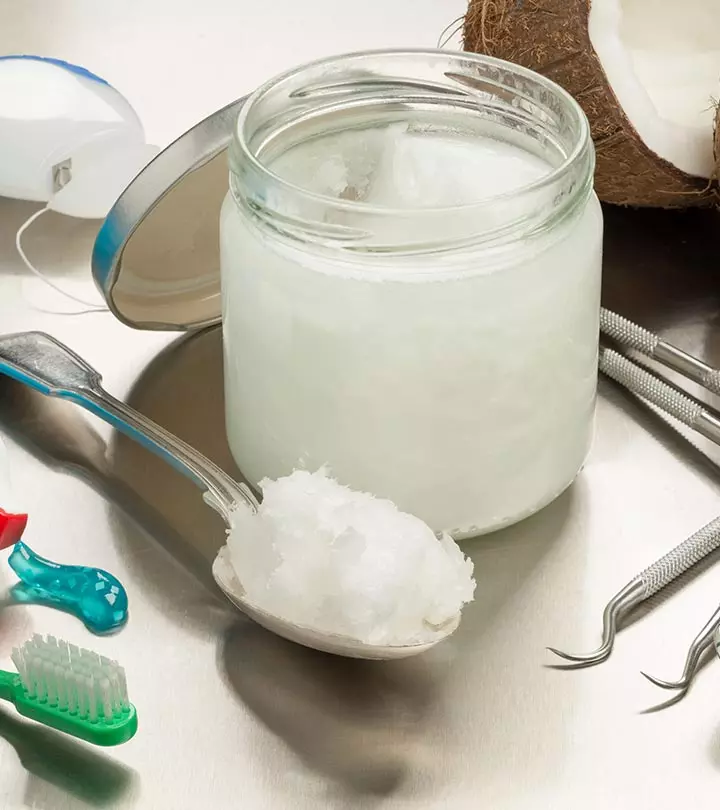
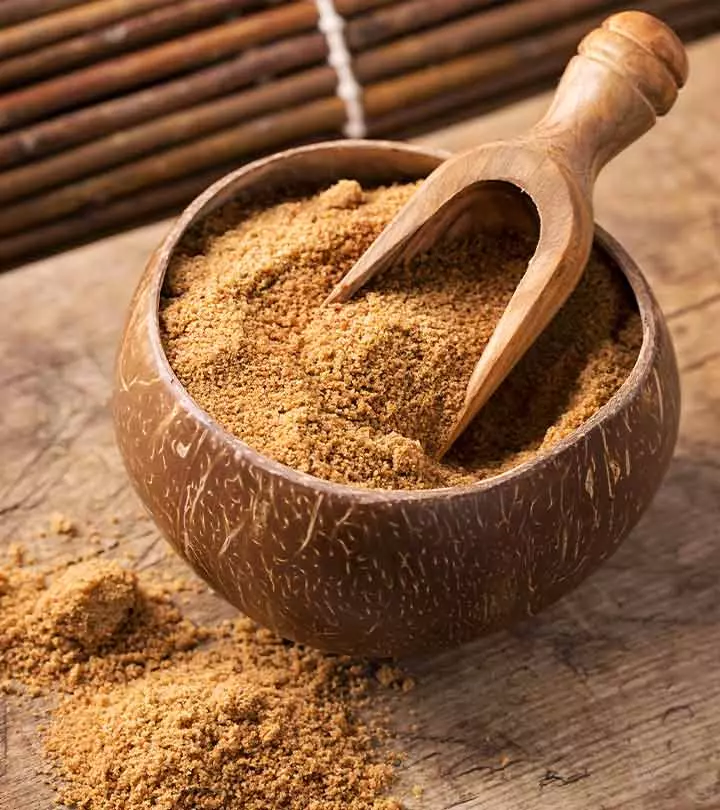




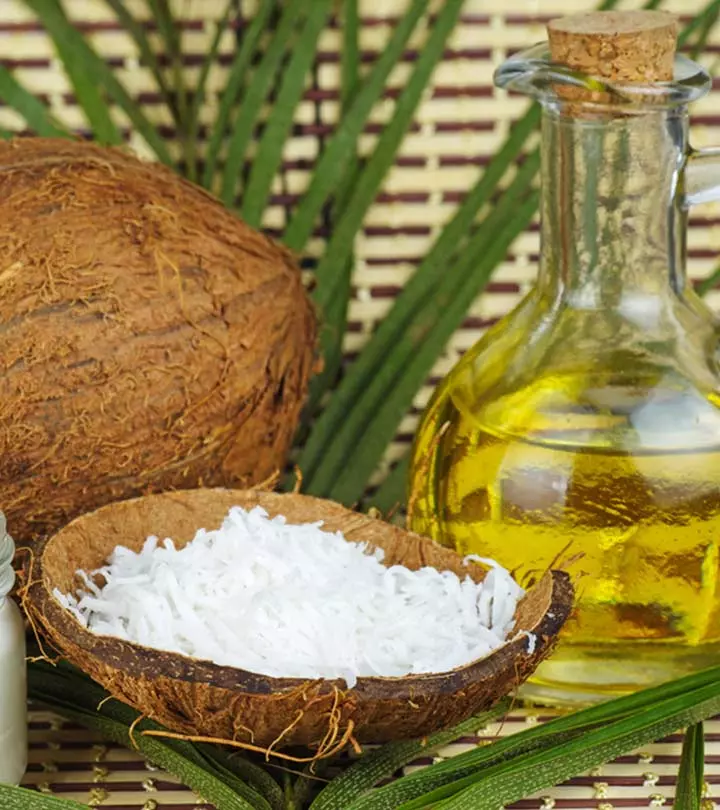
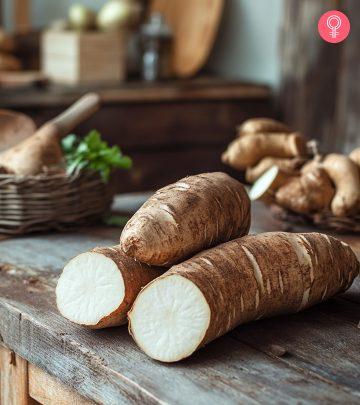

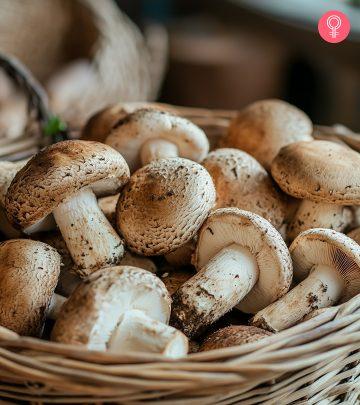
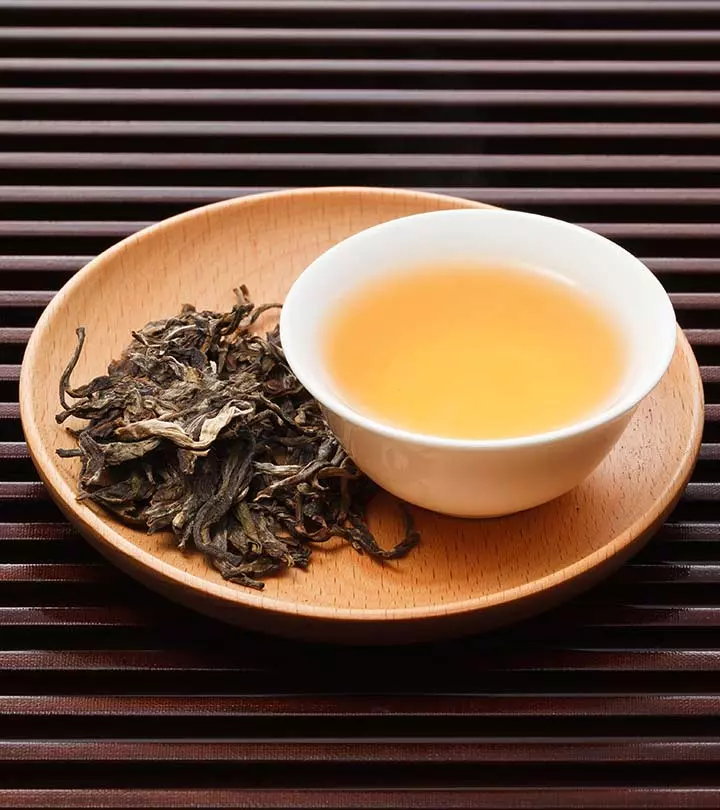
Community Experiences
Join the conversation and become a part of our empowering community! Share your stories, experiences, and insights to connect with other beauty, lifestyle, and health enthusiasts.